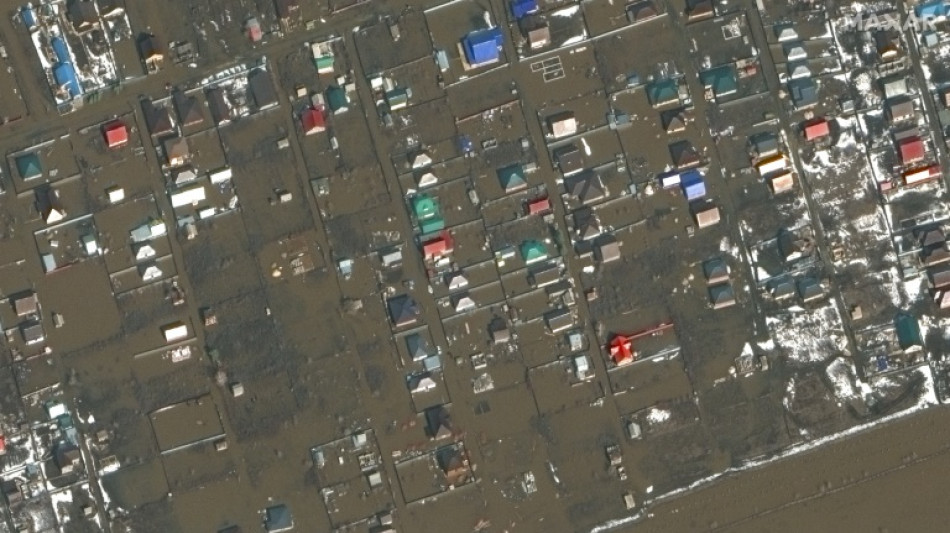
Russia says flood situation 'difficult' as more rivers burst

Russia said on Thursday that unprecedented flooding had created "difficult" conditions and another major river had burst its banks, submerging roads and villages in the Siberian region of Tomsk.
Fast-rising temperatures have caused snow and ice to melt rapidly, causing a number of major rivers that cross Russia and Kazakhstan to overflow.
Three villages in the Tomsk region -- 3,000 kilometres (1,850 miles) east of Moscow -- were cut off from the regional capital when rising waters in the river Tom flooded roads, villages and several houses, state media cited local officials as saying.
Evacuations were continuing in neighbouring Kazakhstan, where around 100,000 people have been forced to leave their homes.
In Russia, the Orenburg region has been the worst hit and thousands of residential buildings are submerged in water.
"This year's flood exceeded all historical figures in the entire history of observation," the Orenburg city administration said on Thursday in a post on Telegram.
Water levels in the Ural river, which flows past the city, have risen nearly one metre (39 inches) since Wednesday morning.
The river was 10.6 metres high on Thursday morning -- 1.3 metres above what officials described as the "critical level".
- Worst in decades -
In Orenburg, home to more than half a million people, another 400 residential buildings have been flooded in the past day, city officials said.
The emergency situations ministry said on Thursday conditions there "remains difficult".
It published videos of rescuers loading packs of bottled water onto inflatable dinghies to take to people stranded by the rising waters.
Spring floods are typical across large parts of Russia and Kazakhstan, as temperatures rise and vast masses of ice and snow melt.
The run-off into rivers often causes them to burst their banks.
But this year's floods have been the worst in decades.
Temperatures have risen quickly, accelerating the thawing process, and torrential rain has aggravated the situation.
Officials in the Siberian region of Tyumen warned on Thursday that the Tobol and Ishim rivers would not attain their highest levels until April 23-25, according to forecasts from Russia's meteorological agency.
In Orsk, the worst-hit city in Russia so far, locals staged rare protests earlier this week over the amount of compensation they were offered for damage to their property.
The Kazakh city of Petropavlovsk, home to more than 200,000 people, is bracing for potentially seriously flooding within the next 48 hours, officials there have warned.
I. Johansson--BTZ

 London
London

 Manchester
Manchester
 Glasgow
Glasgow
 Dublin
Dublin
 Belfast
Belfast
 Washington
Washington
 Denver
Denver
 Atlanta
Atlanta
 Dallas
Dallas
 Houston Texas
Houston Texas
 New Orleans
New Orleans
 El Paso
El Paso
 Phoenix
Phoenix
 Los Angeles
Los Angeles



